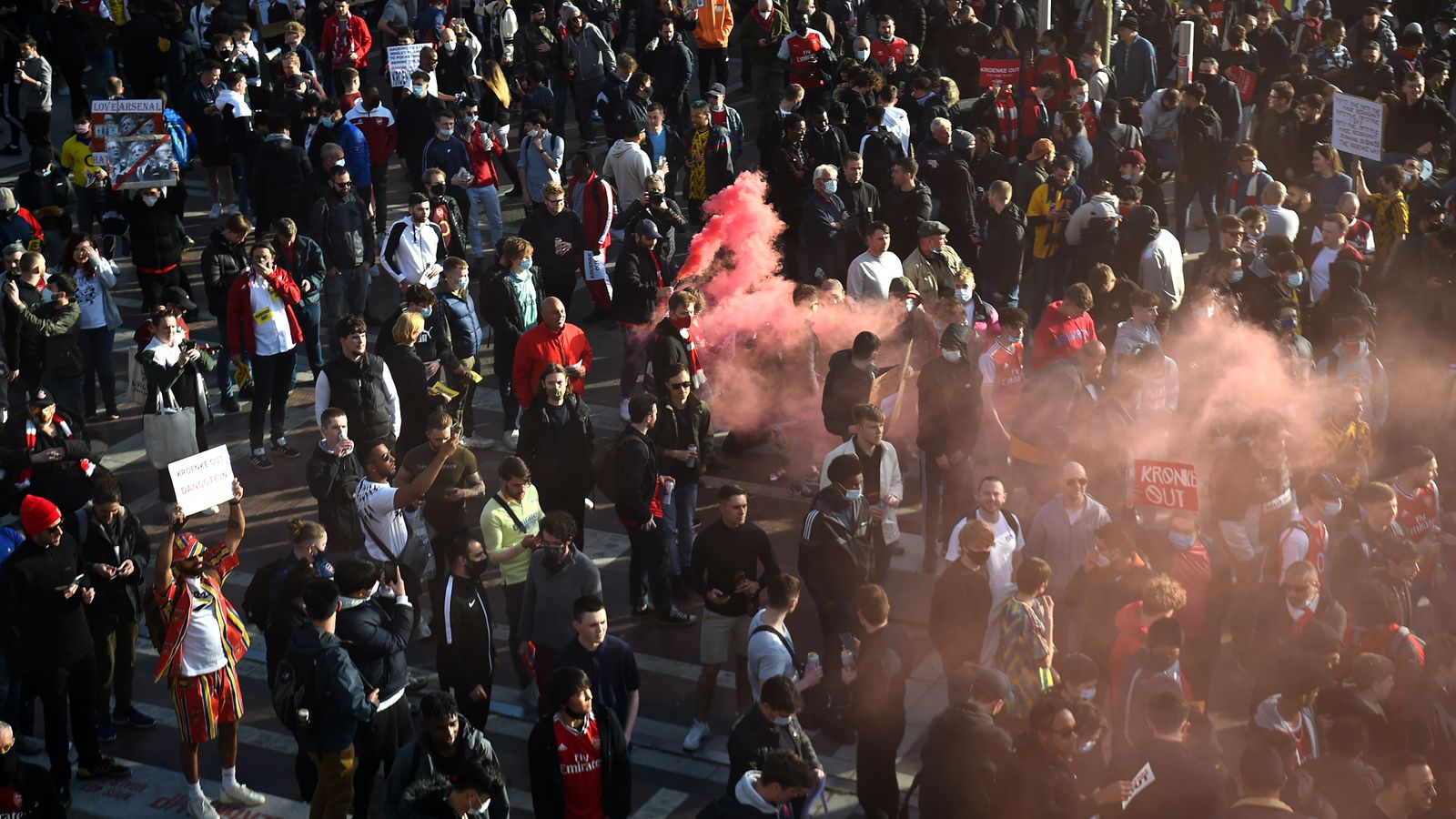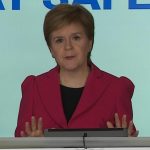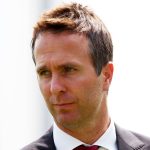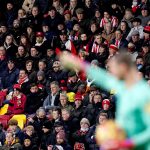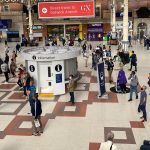Thousands of Arsenal fans gathered outside the Emirates Stadium in protest over the club’s attempt to join the breakaway European Super League.
The supporters also called for owner Stan Kroenke to sell the club, ahead of Friday’s Premier League game against Everton.
Fireworks were set off outside the stadium shortly after kick-off and the crowds started to disperse shortly after.
The demonstration followed the Chelsea fans’ protest outside Stamford Bridge on Tuesday and at Manchester United’s Carrington training ground yesterday.
Arsenal were one of the “big six” clubs who planned to join the controversial Super League, which was announced on Sunday.
After uproar from fans, ex-players and pundits, the Premier League clubs pulled out two days later.
Critics included former Arsenal goalkeeper David Seaman and ex-striker Ian Wright.
During the protests, Wright tweeted “#Kroenkeout”, while Arsenal fan and Spotify chief executive Daniel Ek has suggested buying the club.
Arsenal’s board apologised in an open letter to fans following their withdrawal and said they “made a mistake”, adding they were pulling out after listening to fans and the football community.
As a kid growing up, I’ve cheered for @Arsenal as long as I can remember. If KSE would like to sell Arsenal I'd be happy to throw my hat in the ring.
The board said: “Our aim is always to make the right decisions for this great football club, to protect it for the future and to take us forward.”
The European Super League (ESL) is in tatters with nine of the 12 founding clubs confirming they have withdrawn from the competition – so what happened and what does it mean for the clubs?
Arsenal’s manager Mikel Arteta revealed on Thursday that Kroenke and chief executive Vinai Venkatesham apologised to him and the players.
Arteta said he was unaware of the club’s plan to join the Super League, adding: “I found out just a little bit before the news was leaked, and then everything was completely out of control and the world reacted in a really unified manner.”
Subscribe to the Daily podcast on Apple Podcasts, Google Podcasts, Spotify, Spreaker
“So not really time to think about it, reflect or evaluate because by the time it was out, a big tsunami came on to it and basically killed it.”
American businessman Kroenke was appointed to the board of directors in 2008 and became the majority shareholder in 2011.
